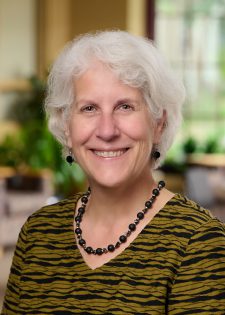Professor of Law
“Students should graduate from law school with more than just knowledge about the law. Law school should give students opportunities to develop professional judgment; to see how the law can be used to help clients solve their problems and structure their affairs; and to evaluate how systems of law achieve or frustrate social justice. The rich and diverse curriculum at Mitchell Hamline provides a wealth of opportunities for a well-rounded education in an atmosphere that integrates academic rigor with hands-on experiential learning.”
Education
J.D., University of Wisconsin
M.A., University of Wisconsin
B.A., Oberlin College
Biography
Professor Katherine (Kate) Kruse teaches and writes in the areas of criminal law, criminal justice, and legal ethics. After graduating from the University of Wisconsin, she clerked for United States District Court Judge Barbara B. Crabb, then chief judge for the Western District of Wisconsin.
She taught and practiced law at the Frank J. Remington Center, a clinical program at the University of Wisconsin Law School that provides legal assistance to state and federal prison inmates, developing specialized projects in criminal appeals, family law for prisoners, mental health law, and elder law. Professor Kruse earned tenure as professor of law at the University of Nevada Las Vegas, where she taught a Juvenile Justice Clinic and directed the UNLV Innocence Clinic. She joined the faculty at Hamline University School of Law in 2012 as clinic director and was named Hamline’s first associate dean of experiential education. She has also been a visiting professor in the clinical programs at American University, Washington College of Law, and Fordham Law School.
Kruse has held leadership positions in the Clinical Legal Education Association (CLEA) and the AALS Sections on Clinical Education and Litigation. She has also served as editor-in-chief of the Clinical Law Review and on a wide range of professional committees and boards relating to legal education. She has published extensively about both clinical legal education and the theoretical foundation of lawyers’ ethical responsibilities to clients and to society.

